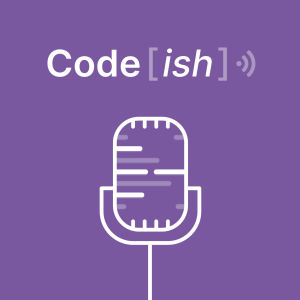
Chris Castle is a developer advocate at Heroku and Salesforce. He is joined by Carter Rabasa, the lead organizer of CascadiaJS, as well as Julián Duque, a developer advocate here at Salesforce/Heroku who organizes NodeConf and JSConf in Colombia. Carter shares his first experiences at a tech conference, finding it to be surprisingly intimate and a great community of well-intentioned web developers that wanted to learn. He was inspired to start CascadiaJS, a JavaScript conference situated in the Pacific Northwest. Over time, he realized that it's the people and the networking opportunities that really makes CascadiaJS special.
When COVID-19 made it clear that in-person events would not happen for 2020, he and his team struggled to figure out how to put on an event that their community would love. It required them to imagine a future where software to support their vision didn't exist yet. They became certain that the event would need to learn how to be virtual for a long time. They accepted this challenge, and set to work building a conference model that they felt was interactive and immersive. There was just a tremendous excitement and enthusiasm to see if they could do something that hadn't been done yet.
Of course, they stumbled in several ways; there were issues sending swag to customers, for example. Still, there are many reasons to keep the virtual conference format. For one, it's more accomodating for people with physical accessibility issues as well as attendees all over the world. There's more flexibility in the timing of events, where speakers can just play their sessions one after another; attendees can hop between different workshops and talks at the click of a mouse. Julián agrees that CascadiaJS' hybrid format of a recorded talk followed by a live Q&A was great for engagement, as speakers were chatting with viewers as their session played. Overall, Carter is excited at future conferences having a serious virtual component to them.
Links from this episode- CascadiaJS 2020 went virtual-only for the first time
- We Need Better Virtual Dev Conferences article
- NodeConf and JSConf in Colombia are just two events grappling with the pandemic
More Episodes
 2021-08-03
2021-08-03
 2021-06-22
2021-06-22
 2021-06-08
2021-06-08
 2021-04-13
2021-04-13
 2021-03-16
2021-03-16
 2021-02-18
2021-02-18
 2021-02-02
2021-02-02
 2021-01-12
2021-01-12
 2021-01-05
2021-01-05
 2020-12-29
2020-12-29
 2020-12-22
2020-12-22
 2020-12-17
2020-12-17
 2020-12-10
2020-12-10
 2020-12-08
2020-12-08
Create your
podcast in
minutes
- Full-featured podcast site
- Unlimited storage and bandwidth
- Comprehensive podcast stats
- Distribute to Apple Podcasts, Spotify, and more
- Make money with your podcast
It is Free
- Privacy Policy
- Cookie Policy
- Terms of Use
- Consent Preferences
- Copyright © 2015-2024 Podbean.com





